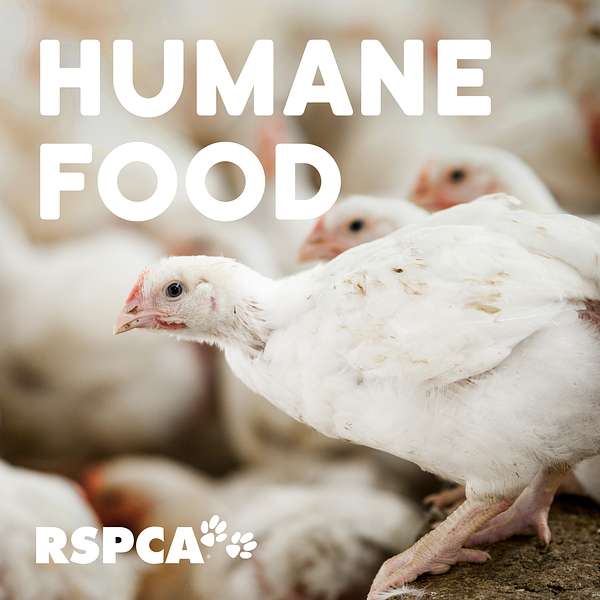
RSPCA Australia's Humane Food Podcast
RSPCA Australia's Humane Food Podcast
Season 2 launch. How is the RSPCA working to improve farm animal welfare in Australia? With Talulah from the RSPCA
Brian Daly interviews RSPCA Australia’s Humane Food Marketing Officer, Talulah Gaunt to find out more of what is to come on season 2 of the Humane Food podcast.
Some of our listeners may only know the RSPCA for the work we do to prevent cruelty to companion animals like cats and dogs. But the organisation has a long history of working to improve farm animal welfare. In fact the RSPCA in Australia was started in Victoria to improve the lives of working horses; and the national organisation of RSPCA Australia was also created to address farm animal welfare issues such as battery cages and live exports at the federal level.
The key point of difference for the RSPCA – and what differentiates us from many other animal welfare groups – is that our policies and positions are based on the best available science and evidence. That’s important to understand because it’s crucial to our work and our activities, and this approach underpins our role in Australian agriculture.
Our focus is always to work and engage with a wide range of stakeholders in the livestock sector, supporting research and development, and connecting with individual producers including through the RSPCA Approved Farming Scheme, in order to improve the welfare of the very large numbers of animals being farmed in Australia today.
Likewise, other listeners may be wondering why the RSPCA doesn’t actively promote a vegetarian or vegan diet? Well, the reason is that, just as the RSPCA respects the choices of people who don’t consume meat or other animal products, we also want to help those people who do eat animal products to make the best welfare choices.
One way of reducing the suffering of animals in livestock production systems is by not purchasing products that are sourced from farm animals at all. Indeed, when some people become aware of the realities of large-scale animal farming, they choose to become vegetarian or vegan. We respect this choice.
But some people do choose and continue to consume meat, eggs and dairy – so for these people, another way to reduce the suffering of farmed animals is to seek out and purchase high welfare animal products. This both directly improves the lives of farm animals and helps encourage farmers to move to higher welfare systems. While there are still many people who are unaware or unconcerned about the suffering of farm animals, there’s a growing community of people who accept animal farming but choose to source products from animals farmed in a more humane manner.
So, while the farming of animals for food and fibre continues, the RSPCA seeks to ensure that the conditions under which those animals live meet all their essential physical and behavioural needs. The RSPCA believes we can help improve how farm animals are treated by getting involved in the process and constantly pushing for higher production standards along the supply chain. We do this at government, industry and producer level.
Key points:
- Teaser of the topics season 2 will cover
- The RSPCA’s approach to engaging with farming industry and encouraging change for better animal welfare
- Why the RSPCA isn’t a vegetarian or vegan organisation
Further links: